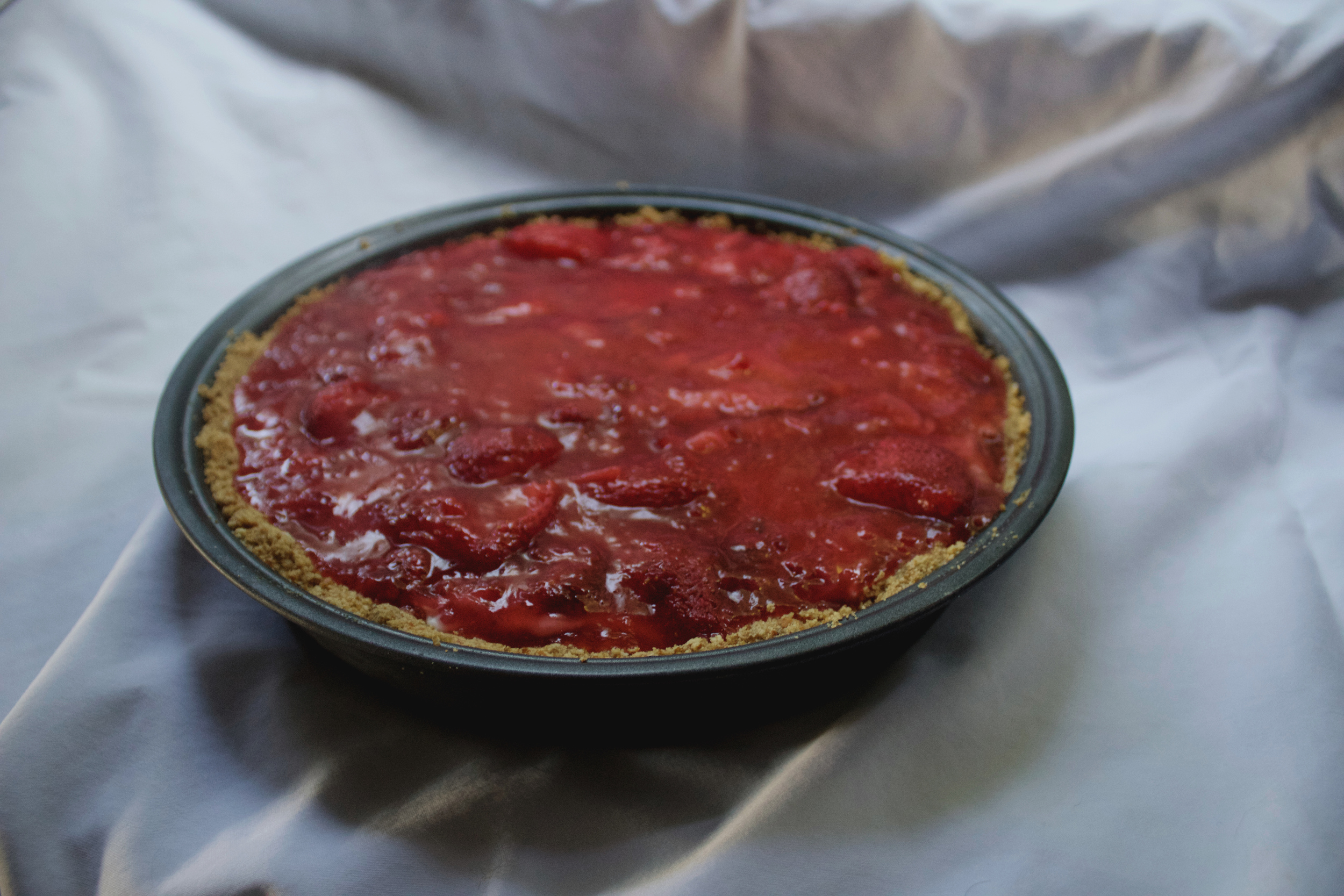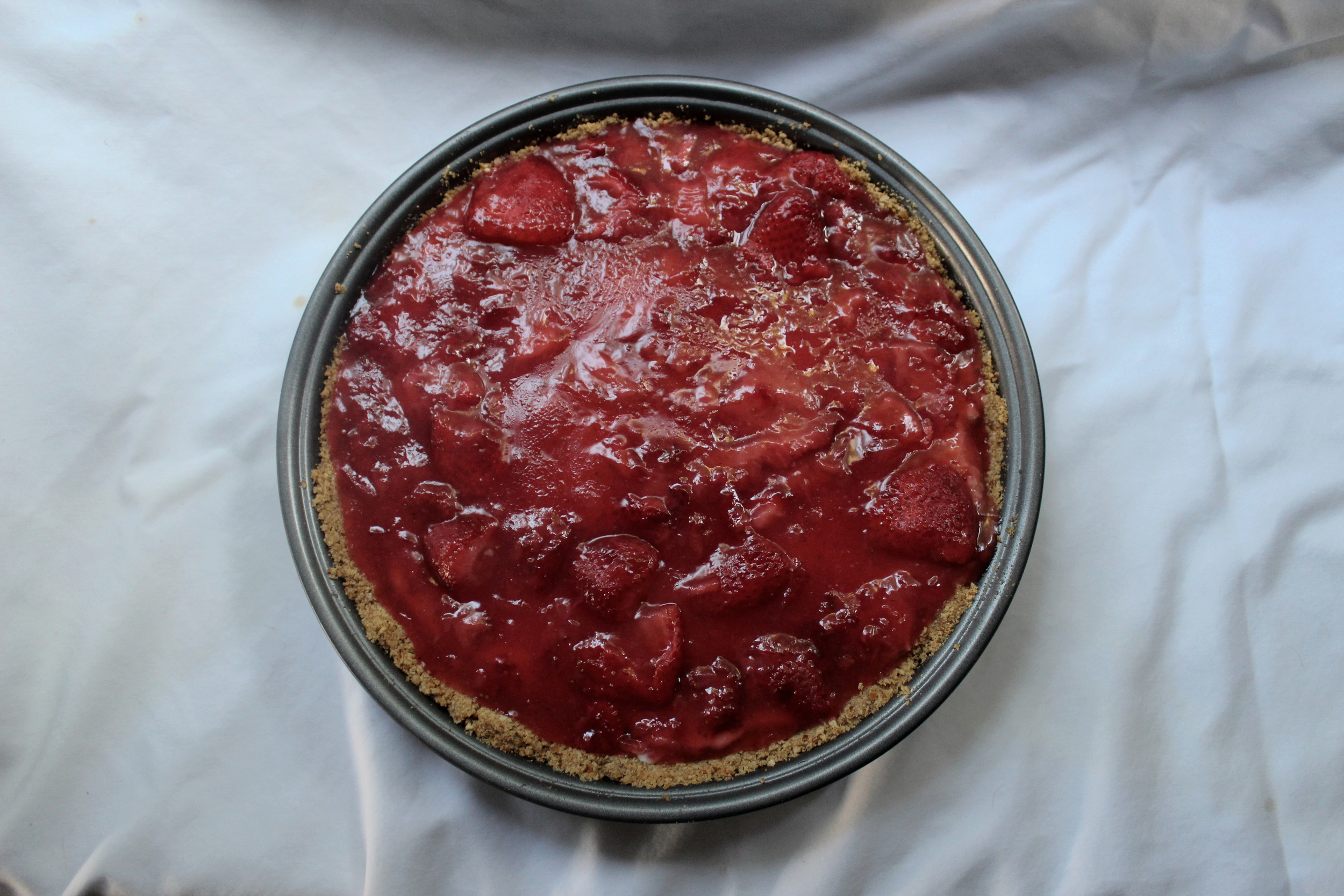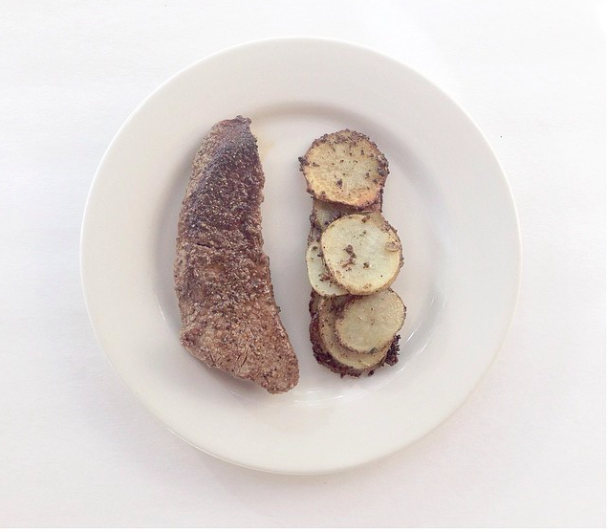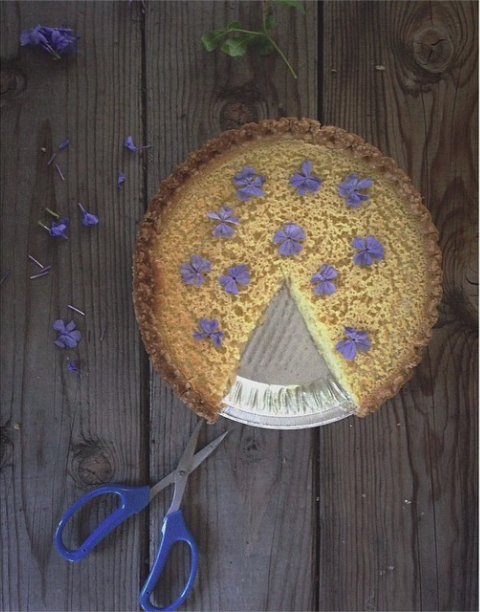Your Custom Text Here
A Church Potluck Favorite: "Pretzel Salad"
I grew up hungry. There wasn't a lot of food in the pantry, there wasn't a lot of time for love. I grew up "working class" and was raised by my siblings, because my parents worked so much. When they got home from the odd jobs they worked, they'd put Spaghetti-o's on the table and tried to get me to drink milk more. It was my sister who taught me to tie my shoes, frustrated one morning when I didn't want to go to kindergarten, the laces trailing behind me and tears welling in my eyes. I already felt like a failure at six years old. She grabbed my laces and taught me with patience, we got on the bus and she held my hand until I calmed down. A lot has changed between us, and that's the last time we were tender to each other. A lot has changed, but I still get worked up so easily. I grew up poor. I grew up poor and I didn't even know it. I grew up poor and knew no other way. I grew up poor when my parents worked four jobs and resented them years later for being too tired to listen to my day, my stories, my dreams of being a famous writer and never seeing them again. I grew up poor and never helped my mom around the house. When she needed it most. When she was so exhausted, she'd fall asleep at the dinner table. When she wasn't herself for so many years, fighting the good fight. She worked in a freezer once, in a grocery warehouse. My dad took a job once stuffing coupons into newspapers. They did it for us. They tried to make ends meet, to tie my laces and keep me young. All of this in Kentucky, where my brother stepped on a nail and he didn't want to tell our parents, in case it cost too much to fix. I asked him about it while I was in North Carolina in June. He still has the scar, and I still have the memory of the sacrifices everyone made, and how I was happy to be too young to understand them all.
One thing I was kept young about was food and levels of flavor until I had moved out of rural Pennsylvania and into Pittsburgh (arguably, still rural Pennsylvania). Until then, I only knew about cake layers, pizza toppings, adding a little more cream to my coffee and calling it something French--I called that cooking. I didn't know herbs existed in their green state, or that anything you saw at through the smudged bakery glass could be made at home. I didn't know a lot of things, because my mother fed a family of five on a dollar-store budget.
We come from Indiana low-country, an often underrepresented class that subsists itself on eggs covered in ketchup, twenty-year grudges, and first marriages that never seem to stick. It's a place where you can drive for twenty miles and still see the same rain cloud in the distance. A place where they get fresh water from a water tower, painted light blue and where kids climb to make out and smoke weed. It's a place with a Dairy Queen and two cemeteries: the Catholic graveyard and the Baptist graveyard. A place where the elasticity of money means being creative, stocking a deepfreeze in the garage with bulk cuts of meat, and eating more preservatives than maybe a neighboring longitudinal town. It means knowing what tastes good and sharing it with your family of five, putting a little extra in the brown paper lunches you pack when the school's get too expensive.
It's comfort food without the luxury of Southern heaviness--no buttermilk or animal fats. Too expensive. We budgeted with Crisco, Velveeta, and Great Value-brand butter, saving bacon fat in a mason jar by the stove for Sunday morning donuts. Everything was saved, everything reconfigured instead of throwing it out. I assume that's how this dessert was made. Some cream cheese was going beyond the saving point, some pretzels were stale. A woman no different than my mother--working class and a mother of three--layered and baked whatever she had on hand, set and cooled the product of her labor in the fridge. She told her friends who told her friends, who went to church and share it at potlucks. It was made cheaper with Jell-o, made easier with Cool Whip. It was adapted and streamlined for economy, using barely any heat and barely any ingredients. And once my mother got the recipe, it became a staple in our house. "Pretzel Salad" it's called. It's a working-class answer to the cheesecake, simple and sturdy and tart how you like it. It sweet enough to balance out all the salt-of-the-earth people I've met throughout my life, reminding me who I really am and where I really come from.
Strawberry and Pretzel Pie (Pretzel Salad)
Ingredients:
For the crust:
- 2 cups finely-crushed pretzels (to the point of coarse meal or flour)
- 1/3 cup firmly-packed brown sugar (light or dark--I preferred the stronger molasses in dark)
- 3/4 cup + 1 tb melted butter
For the cream cheese filling:
- 1 package cream cheese, room temperature
- 1/2 - 3/4 cup sugar (your preference. More tart means less sugar)
- 1/2 cup Greek yogurt, sour cream, or plain yogurt (up the sugar if using the former two options, so it isn't overwhelming)
- 2 teaspoon vanilla (optional)
Strawberry layer:
- 1 quart strawberries, hulled and smashed
- 1 cup sugar
- 1/2 lemon, zest and juice
- A slurry of 3/4 cup water and 3 TB cornstarch
Directions:
- Preheat oven to 350 and prepare a 9-inch pie plate with butter and parchment paper the bottom (optional)
- On the stovetop, melt butter gradually and set aside.
- In a food processor, pulse pretzels and brown sugar together until you get the consistency of corn meal or flour.
- In a mixing bowl, combine two cups of the dry pretzel mixture with the melted butter. Stir with a wooden spoon until just combined, then pat wetted pretzel into the prepared pie plate, molding into the plate to form a consistent thickness and even layering around whole pan
- Bake for 10-12 minutes or until browned
- Set aside and allow to cool to the touch, about half an hour
- While crust is cooling, get a large mixing bowl and whip cream cheese and 1 cup sugar together until peaks begin to form. Soften these peaks by adding your yogurt or cream and blend until the consistency of very stiff meringue, but still easily spreadable. Add vanilla, if using. (This step doesn't take an awful long time, so if your pie crust is still not cool yet, now would be a good time to hull and smash your pint of strawberries, if you aren't following the mise en place philosophy)
- Use a rubber spatula and mix cream cheese mixture by hand for a couple rotations to ensure all ingredients are mixed properly, then pour over cooled pie crust. Distribute mixture over crust and transfer to fridge to cool further and solidify filling for about half an hour.
- While pie is in the fridge, combine strawberries and 1 cup sugar and heat on medium-high to promote maceration. Stirring every so often, bring to a boil. Berries will continue to release their juices.
- Add the zest and juice of half of a lemon, stir. Bring to a boil.
- Add cornstarch slurry and reduce heat
- Simmer until thickened into a jam-like consistency
- Remove from heat, mixture will continue to thicken as it cools
- When cool to the touch, pour and spread mixture on top of cream cheese layer of pie.
- Return to refrigerator and allow to completely set for no less than one hour.
- Enjoy!
Enjoy another taste of my memories, because I'm sure they're your memories, too.
Where I Was From.
I believe in second chances and the inevitable twentieth. I believe the proverbial inch has always been the mile. I believe in exhausting those chances and believe in finding reasons to renew them. I don’t believe in falling in love, but I believe in sticking it all out until you can’t stick it out no more. You have to find a way to reinvent yourself and I have been reinvented over and over these last few months. I’ve been unemployed, a salesperson, and an administrative manager. I’ve been really shitty to myself, really shitty to others, and at times negligent of everything. Bills and housework, dogs and boyfriends. All my relationships kind of crumple when I don’t tend to them, they end up like flowers in the kitchen windowsill—swollen and hot, then brittle to the touch. But I’ve learned to brush the dust off my hands and work harder at the goals I have. And that is the Protestant work ethic. My reward will come from work, not by the grace of your God or mine, not by the outstretched hand of a friend or an acquaintance.
That work ethic has run deep and has presented itself in unlikely ways. It’s intravenous and liminal, static and electric. It’s down in my gut when I’m guilty of sitting on the couch too long and painstakingly obvious when I fall asleep with another To-Do list in the works. It will all make me a better person, every last drop of sweat. Every last missed opportunity. Every last night in and early mornings and missed vacation. It will all pay off, because you gain pride from the aceticism of owing someone else so much, too guilty to ever give yourself too much credit, buy yourself too many clothes, put a little back in your own bank account for that proverbial rainy day fund that disappears before that rain every dried up.
When everything is communal, you start to lay claims. And I thank whatever God that’s been bred into my consciousness that I can still hold onto that. And I owe it to my roots, the kinds that haven’t taken hold. The kinds that are telephonic and casual, the kind I can pick up or ignore at will. The kind that still live in Pennsylvania, Indiana. North Carolina and West Virginia. The kinds that inspired within me to be truthful of my intentions in this world and truthful to the person I’ve become.
My mother has arthritis at 43, deep in her clavicle. She said it came from working “hard jobs”. She’s been a janitor and a candy-maker, she worked in a deep-freeze at a Wal-Mart distribution center in eastern Kentucky once. She comes from a German stock; we’re all flat-boned and broad limbed. My dad never had to go to war, but he served our country just the same. My aunt has worked at the same factory for 15 years. My uncle drives trucks for a living and my sister makes coffee for truck drivers off an interstate near Maryland. They’re hard folk who eat hearty. They’re heavy folk who eat light in the summer until dusk and then they feed heavy. Meat and potatoes, biscuits and gravy. Dough fried in reserved bacon grease, informal dinners around the TV.
All this I recognized from my trip to North Carolina, all this I recognized in myself. And I can’t deny it any longer how my Midwestern values took root somewhere in my soul, and I can’t deny the satisfaction of having people like me exist in different circumstances that I could never see myself in. When everything is communal, I lay claims to my family and my pride in being from the salt of the earth.
And, in doing so, I have become so inspired by the every day. The roadside produce stands and the chainlink fence. The rope-tied dog that howls at the open moon and the crawdads you never knew could be eaten. The marriage of eating-this-because-we-have-a-coupon and eating-this-because-my-mother-made-it-this-way. Seeing beauty in that. Or how there are town-wide parades to celebrate the anniversary of my uncle who died in Afghanistan. Seeing beauty in the years of the hardworking middle-class that gave me my bone structure and reaping the benefits of those farmers and military men to move to California and willingly quit law school to find myself the hard way and know what it’s like to be really, truly poor for the first time ever and learning to cook because of necessity and not as a hobby.
The Protestant work ethic. The marriage of Southern tradition and Midwestern values. The sense of accomplishment at not losing my mind and finding a place in my family in June. It was all so holy to me. I didn’t know it was going to mean so much to me, but it was a pilgrimage, a Hajj, a Junrei of self-acceptance vis a vis familial acceptance. Where I was from, where I am going. Who I am. These are no longer existential cries of understanding, they are part of my here and now.
And in celebration of that knowledge, I cooked. I cooked with love, with honor and tradition. With understanding that these would be hearty ingredients, that the cast iron was necessary and not accessory. That the fatty dairy would have been pure, like how my grandmother Ruth would have made it straight from the cow (how maybe I would have, too, if my grandfather hadn’t sold the farm in the 70’s). I made this meal to honor every composite of myself. And it’s simple: meat, potatoes, and pie.
Steak and Buttermilk-Herbed Potatoes
This is a casual meal, thrown together without discretion for any kind of culinary know-how. Love it for what it is, for where it came from.
Ingredients:
For the Steak:
- 2 rib steaks, 6-10 oz
- Olive oil
- Cayenne pepper
- Salt
- Black Pepper
- Garam masala
- Paprika
- Garlic salt
- 2 TB Butter, softened
For the potatoes
- 6-8 small to medium russet potatoes, sliced as thin as you can (do this before beginning cooking the meat. If need be, place in cold water to keep)
- 1/3 cup buttermilk
- 4 TB butter, melted
- 1 TS salt
- 1 1/2 - 2 TB Herbs de provence
- 2 cloves garlic, finely minced
Directions for Steak:
- Completely thaw steak until malleable and soft, completely sandwich between paper towels and pat dry
- Brush with olive oil and rub in softened butter (the butter will give flavor, the olive oil will help to sear) and set aside, making sure to not wipe off the butter and oil.
- Use two separate plates for the rub. On the first, pour the spices. I would say I used 1 1/2 TS - 1 TB per spice (be cognizant of the flavors, for obvious reasons. I used less salt, but knew the steak--and my tastebuds--could hold up to a more seasoned and spicy meat with garam masala and cayenne pepper). Combine with a fork.
- Place oiled and buttered meats into spice plate and rub completely around. Place on reserved plate.
- Heat skillet (definitely prefer cast-iron here, but make sure you have some ventilation for it). Use additional oil and butter until the pan starts to smoke a little to enhance the sear of the meat.
- Put meat on skillet and let it sizzle. As a general rule, do not touch meat until it voluntarily allows itself to be pulled from the metal. Let it sear and cook for 3-4 minutes. Check readiness. Flip for additional 3-5 minutes, depending on how done you like your meat.
- Reserve steak grease for use. Wrap in aluminum foil and let sit while you prepare the potatoes.
Directions for potatoes:
- Place potatoes in bowl (dry them off as much as possible so the herbs and butter can stick).
- Melt butter in small saucepan or microwave, pour over potatoes along with buttermilk
- Add salt, garlic, and herbs
- In the same skillet you cooked the steaks, add additional oil or butter and heat back up. Does not have to smoke-to-sear here.
- Pour potatoes in and stir constantly until all edges are crisp and inside is softened. Some will be burnt and blackened, some will be soft and baked.
- Allow to cool for a minute. Plate with steak. (Additionally, enjoy these with a little cheese while still hot, if desired).
- Enjoy!
Buttermilk-lemon Pie
And finally, for you, I have a buttermilk-lemon pie that truly invoked my newfound love of the South. So pretty, so simple. So versatile. And did I mention pretty?
Ingredients:
- A good quality store-bought pie crust (okay, okay, I cheated here a little)
- 3 eggs
- 1¼ cups granulated sugar
- 2 tablespoons all-purpose flour
- ½ cup melted butter
- 1 cup buttermilk
- 1 teaspoon vanilla
- 1 tablespoon lemon juice
- 1 tablespoon lemon zest
- Pinch of salt
- 2 TB raw organic sugar (not super-fine, but you want crystals) or brown sugar
- 1 TS instant espresso
Directions:
- Prepare 9-inch pie crust per your own recipe or the package directions
- Mix all ingredients (save the organic sugar and espresso) until well-combined. It will be pale yellow and delicious. ((I mixed all of mine in a Pyrex liquid measuring cup for ease)
- Pour into prepared pie shell
- In a small bowl, mix organic sugar or brown sugar and espresso with a until well combined. With a spoon, gently shake and pour sugar until covering pie. Use more if not enough (I eyeballed)
- Bake for 45-50 minutes until cracking and caramelized on top.
- Allow to cool in fridge for about 30 minutes for best consistency for slicing and taste.
Easter Sunday.
It was 1998 and I was seven. We visited my grandmother's grave for the first time. In a rippling field, in a small valley in Indiana. Forty-five minutes from Cincinnati and silent as a lamb. I held my mother's hand, dressed in paisley and wearing a clip-on tie from the dollar store, we watched the barley sway when we breathed and tears splashed on my hand, having slid unchecked down my mother's cheek.
It was Easter Sunday then, and we were driving past after an egg hunt and it wasn't intentional to stop, but we did. We stopped and held our breath when we recognized the name, etched into stone. It was nondescript, Norma's grave, and it was us who gave it any significance. It had stood there since 1980 and was probably going to still be there for a hundred years. That's the thing about Indiana--even the most dead things there have a more cast-iron constitution than anything living in California. Salt of the earth, you could die from their kindness.
My pockets filled with gold foil chocolate coins, clanging with change in broken plastic eggs, meticulously counted and stashed in my breast pocket, that was the Easter I knew there was heartache. I could read it on my mother's face. The only thing Protestant about my mother was her work ethic, everything else was superstition to this woman. But she was wondering, bartering, trying to make sense of it. If Jesus came back, why hasn't she?
They're both nameless, God and Norma, and that's the only thing they have in common. We call her "your mom" when addressing my own. It's an alienation of propriety to call her "grandma", even if we wanted to. Instead, my siblings and I sit and wait to hear any recollected memories of her from our mother. We know she liked As the World Turns and her husband was a drunk, that she liked peanut butter and was poor as dirt. But every Easter, I can't help but think of this woman, this shadow of ourselves, laying in the ground somewhere east of the Mississippi, and how she never even knew I existed.
And I thought of her this week. I made a prayer to the sky, to God and to her in heaven. I made a prayer to the gemstones I keep in a satchel, her body part of the ground now. I wanted to cover all my bases. I wanted to thank her for her work, to tell her that I like peanut butter, that I know what it's like to be dirt poor. I wanted to relate to this woman. And I just couldn't.
So instead I worked. I wake up at five thirty now, to ensure greeting guests and supervising the breakfast hour. It was busy for a holiday, which kept me there until dinner time. I drove home on an empty road and found Nolan and the dogs outside on the patio, music playing and eyes sleepy from the sunlight. Ham was waiting, potato salad made, eggs boiled. It was all done, done for me, with nothing to worry about but myself.
And so we ate. We ate and laid on the couch, lounging in akimbo postures to accommodate two dogs on our ikea Kivik couch, bought when it was just us. It was peaceful, it was easy. I called my parents and they had dinner at Bob Evans, dessert at a local shack that serves ice cream just up the road from my old high school. I said I was sorry I couldn't be home for the holiday, she said she was sorry the card was going to be late. It was easy to forget all she did do for me, but even easier to forgive a late card here or there. My mother works as a candy maker now, so Easter entails 13 hour days for her; no apologies needed.
But for us, in our tiny house in San Diego, we snacked on bread, took alternating naps, and wished tomorrow wouldn't come, so we wouldn't have to go back to work ever again.
These were naturally-dyed eggs made from coffee (the brown ones), paprika (yellow), and grape juice (grey-purple). I love the rusticity of their coloring and the way they feel like home.









